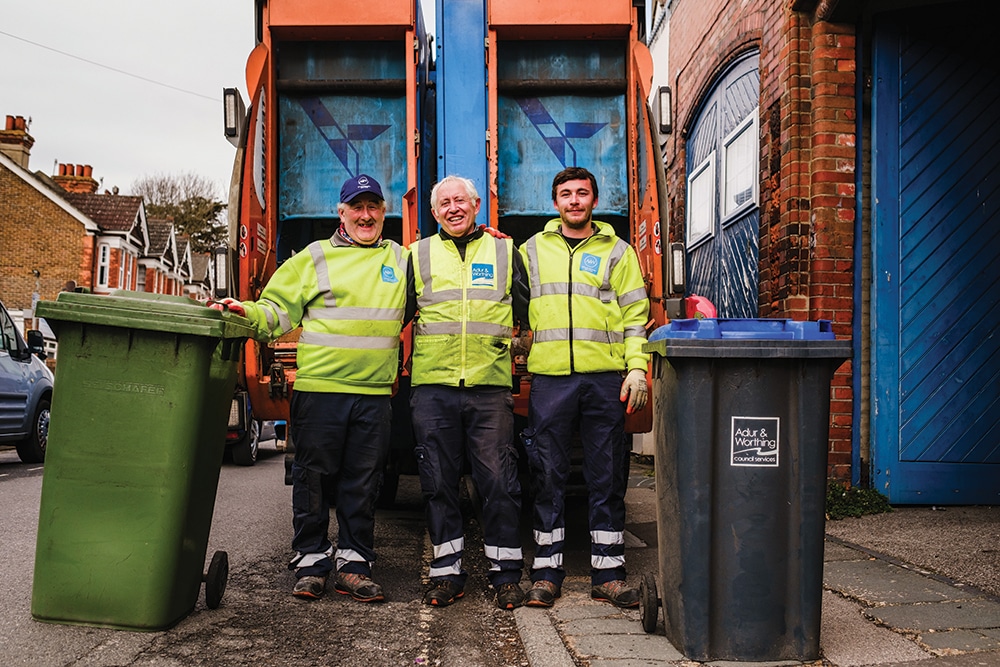Allen, Anthony & Greg
The Waste Operatives

Allen has worked as a refuse collector for Worthing Council 14 years. He worked with a crew of colleagues, collecting domestic waste across Worthing, Lancing and Shoreham throughout the Covid-19 pandemic lockdowns.
For essential workers in the waste disposal sector, fear of the virus was a daily reality. “I was scared about catching the virus at the beginning. It was a bit scary at first, I’ve got asthma so I was worried because we saw all these people getting really ill. But you’ve got to do what you’ve got to do. We wore our masks and once we got used to it, it was alright.”
Councils saw a dramatic increase in waste produced from households as the country went into lockdown. Allen saw the huge amounts of rubbish at the start, “everyone was at home making more rubbish and recycling.”
Local authorities received Government guidance encouraging them to maintain waste collection services as much as possible, prioritising collections to maintain overall service, preventing any buildup harmful to local amenity and public health. But lockdown restrictions saw the closure of local tips to the public between March-May 2020 and fly-tipping increased as the volume of waste accumulated.
“The tips were closed – there was loft rubbish, garden waste, stuff from garages and sheds, the bins were fuller than normal.”
Like most people, the reduced volume of road traffic was noticeable for the waste teams doing their weekly rounds. “There were hardly any cars out at all and we thought we’d be able to do the rounds quicker.
We normally manage to get to the tip and back three times in a round, but we couldn’t get as far as we normally do at the start of lockdown. The weight of the bins was a lot heavier and we filled the wagon faster. I think people were stocking up on food they didn’t really need.”
The role of front line workers including refuse operatives was highlighted during lockdown. Expressions of public gratitude were common at the start of the first lockdown. “The public reaction was brilliant at the beginning. People would come out and offer us cups of tea and give us biscuits, it was good at the beginning.”
However, once the restrictions began lifting and traffic levels resumed, the team noticed the familiar pre-pandemic attitudes return, “once it started easing off, we saw people being more impatient again.”
